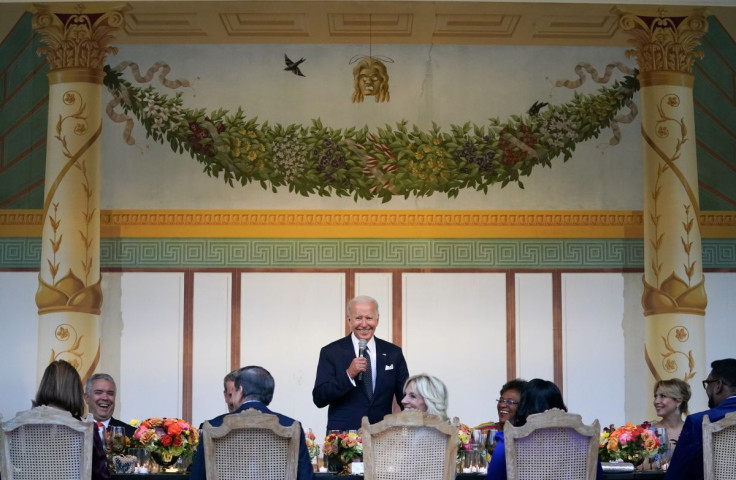At Summit Of The Americas, U.S. Rolls Out Measures To Help Migrants

The United States rolled out a raft of actions to support migrants on Friday as U.S. President Joe Biden and fellow leaders prepare to issue a joint declaration on migration on the final day of an Americas summit beset by diplomatic squabbling.
The Biden administration pledged hundreds of millions of aid to Venezuelan migrants across the Western Hemisphere, as well as programs to support temporary family-based visas for Cubans and Haitians and ease the hiring of Central American workers on Friday.
The announcements are set to accompany a U.S.-led pact dubbed the "Los Angeles Declaration" that aims to create incentives for countries taking in large numbers of migrants and spread responsibility across the region. But some analysts are skeptical there will be many meaningful commitments.
The plan caps the Summit of the Americas hosted by Biden in Los Angeles that was designed to reassert U.S. leadership and counter China's growing economic footprint in the region.
However, that message was clouded by a partial boycott by leaders, including Mexico's president, in protest at Washington's exclusion of U.S. antagonists Cuba, Venezuela and Nicaragua from the gathering.
At the summit's opening session on Thursday, leaders from Argentina and tiny Belize took to the podium to rebuke Biden face-to-face over the guest list, underscoring the challenge the global superpower faces in restoring its influence among poorer neighbors.
The declaration, due to be presented by Biden and other leaders on Friday, will call on governments in the region to expand their own temporary worker programs, said a senior U.S. official who previewed the plan.
Some countries are unlikely to endorse the migrant declaration, according to a person familiar with the matter. Some Caribbean states would not approve it, an official at the summit said.
U.S. officials are expected to work right up until the rollout ceremony to persuade skeptical governments to accept, or at least not openly oppose, any of the summit commitments, another person familiar with the negotiations said.
U.S. officials believe the open backlash Biden faced in Thursday's plenary has fueled the determination of some leaders against caving in to American pressure over the declaration, the source familiar with the matter said.
Mexico will back the declaration, an official at the summit said.
Curbing irregular migration is a top priority for the Democratic U.S. president, as the number of attempted illegal crossings at the border with Mexico has risen to record highs.
Republicans, who hope to regain control of the U.S. Senate and the House of Representatives in November midterm elections, have pilloried Biden for reversing the restrictive immigration policies of Republican predecessor Donald Trump.
But the migration issue - as well as the summit itself - has had to compete with Biden's other pressing challenges at home and abroad ranging from surging inflation, the debate over gun control after recent high-profile mass shootings, and the war in Ukraine.
U.S. efforts to stem migration from the so-called Northern Triangle region - Guatemala, Honduras and El Salvador - have been hampered by corruption, with projects likely worth millions of dollars shelved and some private-sector engagement stalled.
In recent months, the Biden administration has sought to portray migration as a challenge for all of the Americas, calling on other countries to strengthen protection for asylum seekers and expand their access to legal pathways.
The absence from the summit of the leaders of Mexico, Guatemala, Honduras and El Salvador have raised doubts about how effectively the proposed pledges will become reality, although U.S. officials said the turnout would not prevent Washington from getting results.
© Copyright Thomson Reuters 2024. All rights reserved.





















